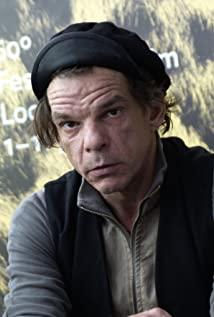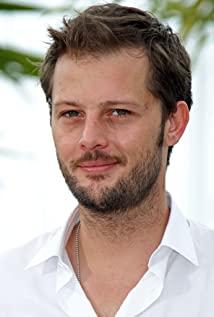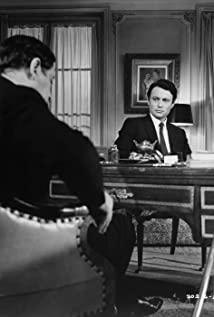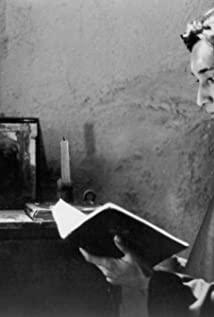Claire Denis is undoubtedly an author and director who has been overlooked by the public for a long time. She has entered the age of antiquity and still maintains vigorous vitality in the 21st century, constantly innovating. "Forbidden Love in the Army" was filmed in the last year of the 20th century, and I think Denis’s most culmination in authorship and director’s aesthetics.
Description:
The narrative of "beua travail" (I use the original text here because the director had protested against the Chinese translation) is fragmented and fragmented, because the whole film is basically composed of the memories of Lieutenant Galoup played by Denirawang. It first possesses the lightest posture, completing the narrative with an almost fluid memory frame. At the beginning, Denis used overlapping shots to show the audience his own presuppositions, and the writing of memories flows freely like sea water. The sea is being carried forward by the waves, but the memory extends inward.
The opening shots first set the tone for Africa: arid, fiery, expansive, and lustful. While the recruit sentian wanders like a ghost, he remains unmoved. This just illustrates his position for Lieutenant Galoup in the entire film: symbolized, stared at, and treated as an object of pure desire. Then came the vast African desert outside the shaking train window, and then the camera moved out, the desert, the idle tank, the hay in the desert, and the shadows on the hay. Such a series of shots finally led to the situation of soldiers' ritualized drills. The writing unfolds, and the film enters the real narrative.
Both "beau travail" and "Last year in Marienbad" hide the narrative under the mystery. Dramatic conflicts cannot be triggered but infinite energy bursts out from the self-consistent self-movement of the image (De Ni Lawang's Solo dance, Seliger's looking back). Alan Renai and Grillet mix two periods of time into the same scene, where the characters are lost while breaking the shackles of traditional narration. The military officer played by De Nilavon travels freely between fragmented memories and boring reality, and allows the colonial affiliation between Africa and France to be dissolved in the memory, creating a wonderful connection. "Beau Travail" is irrelevant to politics, and the film rarely involves the discussion of postcolonialism. Africa is seen here as a kind of instinct, a kind of primitive desire, undisturbed by modernization and complicated capital, as a stage for showing pure beauty. The barracks is a game field for men. But it is obvious that this is an unfair duel, because the other party has no desire to fight. Sentain just did his own part according to the rules. And this is exactly what Galoup's fantasy is: vigorous and unworldly, that is, having a pure heart but secretly breaking the balance.
desire:
Galoup's feelings for sentin are undoubtedly a parallel of love and jealousy. But rather than saying that he loves sentin, it is better to say that he loves the various symbolic qualities that he carries: young, calm, brave, and handsome. The boundary between love and jealousy is easily broken. Especially after sentin broke the ambiguous relationship between Galoup and Commander Bruno, the boundary between the two was completely confused. Here Denis helped Galoup, allowing him to completely avoid any form of Eros that happened (or did not happen) within the existing framework. Galoup only recalled his coldness and unfeeling in Africa, but avoided his obsession with beauty, the blooming of self-erotic desire, and the jealousy of young flesh. Let him deny his own desire for possession in eros. He just turned all this into an understatement in his diary: "sentain, I want to destroy you." Here, eros turns into jealousy.
Galoup's desire is the pursuit of pure beauty, and the aging of the body has prompted his admiration for young ketone bodies. Under the blessing of Benjamin Britten's opera "Billy Budd" and the vast, natural and pure situation that has already been constructed, Deney almost myths the male body through his wanton passage from the camera ghost perspective (Galoup perspective). . In this situation, desire is not a Lacan-Freud-style triggered by scarcity, but a productive desire similar to Deleuze. Desire is active, active, and puts into the object to generate intensity.
In this ritualized game, mutual gaze, which can also be understood as an unkissed kiss, presents a unique relationship between the gaze in the ritual-the bystander gazing at the role in the ritual-the audience gazing at everything. The strict hierarchical system in the army is completely dispelled, and desire is separated from the main body in a powerful manner, and all the characters are encumbered to allow them to have a productive and vital gaze. The military's work scene is imaged and turned into a stage dominated by desire. The characters are here out of the narrative, and the entire paragraph is also out of the conventions of any film narration. Such an exciting and great fragment does not carry any narrative function, because it has been emptied out of the movie and has become a grand "carnival". It is not that I have desires, but desires drive me. Here we are stimulated with a true thirst for beauty, and the entire fragment becomes a hymn dedicated to desire.
Discipline:
Foucault pointed out in "Discipline and Punishment": With the development of capitalism, the means of punishment have changed from humiliating and harsh punishment to a gentle, physical discipline. Make it conform to social norms, consciously become a small part of a huge social machine, and become a valuable worker who can contribute to society. Obedience is the purpose of discipline, and the military camp is undoubtedly an extremely important place for discipline. The requirement to become a soldier is unconditional obedience.
"Beau Travail" undoubtedly shows us this kind of hierarchical discipline system. And beyond a conscious criticism. It's hard to say what attitude Claire Deney has towards such a huge discipline system, but the video is the best proof. When she asked real dancers to design the shots of the soldiers' drills, it just happened to illustrate the boring and rigid practice of reality. The soldiers sang of discipline and bravery, the strength of France, but they appeared on the territory that had been independent but once belonged to France. Although still maintaining the style and discipline of a troop, their appearance is already an embarrassment that is untimely. Claire Deney didn't give any explanation for this. The soldiers are like ghosts, but they still have to maintain the original order because of their own existence.
The next shot the soldiers drilled is the meticulous clothes hanging, followed by shots of them ironing their own clothes. Calderney built up the gender characteristics of the soldiers in a very short period of time. Under the traditional patriarchy (obviously the military camp is still in this mode): male characteristics require them to exercise, exercise, and be full of speed and strength. . Feminine characteristics require them to wash and dry their clothes, iron them and put them on, and support themselves.
The trap Galoup sets for Sentain is to take advantage of the strict hierarchy of the discipline system. For this reason, Galoup set up this trap. This trap is not so much a strategy as Galoup’s expectation of Sentain: he hopes Sentain can cross the inhuman and strict obedience system, cross the huge gap of power, and go. Arrived in that sincere and pure state. In Galoup's memory, this was the most intimate action of their two bodies. He knew Sentain would do that, because of this he was the object of Galoup's desire. Of course, we can't know from his memories full of escape, but at least we can explore Galoup's true feelings for Sentain through the pretending cold language. And the sad thing is: when the other party finally reaches the state you expected, you will destroy him. Because what you expect is what you cannot achieve and cannot bear.
Peerless Dance
Galoup fell into a symptom of almost aphasia after returning to France. In the limited shots, we can only see him in a state of perplexity, reminiscing, and constantly reminiscing. And the memory has long been distorted by him, or has fallen apart. He couldn't get rid of the guilt of ruining beauty, and he couldn't get more comfort in his memory. He has an extreme sense of tragedy. There is also an aging heart that longs for beauty. It is easy to think of the boy Mizoguchi in Yukio Mishima’s masterpiece "Kinkakuji Temple" or the writer Ashenbach in Thomas Mann's "Dead in Venice". The former destroys the beauty, but after the destruction bursts out the infinite desire for life. The latter died for destruction, and the shadow of Tazio playing in the water under the sunset became eternal in his eyes. And Galoup's complex psychology, the swelling desire formed by various conditions, prompted him to destroy the beauty and himself indiscriminately.
When "beau travail" was shown in the archive many years ago, Claire Deney said that this movie can be understood as a person's dream. Although this may be too simple to say, the drift of consciousness, the trivial narrative, the light posture and some visual scenes are all reminiscent of dreams. And all things can find a realistic basis for the narrative, only the final dance is beyond Galoup's control. The original ending was Galoup committing suicide by swallowing a gun. It can indeed be speculated: France, cold weather. Galoup still kept the habit of being in the army, tidying up the bed, then took out the pistol, the young men in the army appeared in his mind, the camera moved upward, and the sentence outside the picture: "serve the good cause and die. "This can be his babble before he is about to die, or it can be the last sentence he wrote in his diary before he decides to commit suicide.
Claire Deney also said that she loves Galoup very much, so she designed the last dance. The performances of Denis-Lavan's performances are so smooth that the ending becomes a real dance that wanders between life and death. The solo dance was cut into two parts. The first part is Africa, calm and confident, the body dances rhythmically with the music. In the previous clip, the hot dance hall in Africa caught people's attention, and Galoup shuttled through it, as if looking at something, like a ghost. The second part is France, which proves his guilt, the madness caused by his extreme desires, a state of delirium. Rhythmic movements are replaced by wanton stretches of the body. Represents the defeat of discipline. Prior to this, the video has always emphasized the sense of speed, strength, and rhythm of training. Putting it on the soldiers is the result of the discipline system. In the end, the officer's wanton dancing body broke all of this, and it also proved the fear in his heart.
If you want to explore Galoup's mood, in the first solo dance, his firm eyes always look forward. It is stable at this time, perhaps this also represents the change in his mood after returning to France from Africa: in the struggle with the past and memories, there is still no confusion. Trying to get closer to what he thought of, this is life. In the second paragraph, the mania of the body also caused his eyes to drift. He lost his direction and had to leave the field in embarrassment after frantically stretching his limbs. This meant that he finally couldn't stand his behavior. What he had done before went to a rout. He couldn't accept the ending, it was death. He always looked at more than just a wall. Galoup was fighting against everything in the past—continuing the drills of the soldiers in the past with dancing, exhausting himself and burning his life with actions, and telling with practical actions. With their own pain and existence.
View more about Beau travail reviews











